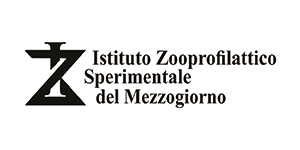 Nei suoi laboratori attrezzati con macchinari all’avanguardia e strumentazioni sofisticate, la Fondazione EBRIS svolge attività di ricerca di eccellenza. Queste si concentrano sull’analisi approfondita dell’interazione tra nutrizione e stato di salute, ossia dei meccanismi in base ai quali la nutrizione è in grado di influenzare la patogenesi di malattie autoimmuni e di alcune malattie del sistema nervoso.
Nei suoi laboratori attrezzati con macchinari all’avanguardia e strumentazioni sofisticate, la Fondazione EBRIS svolge attività di ricerca di eccellenza. Queste si concentrano sull’analisi approfondita dell’interazione tra nutrizione e stato di salute, ossia dei meccanismi in base ai quali la nutrizione è in grado di influenzare la patogenesi di malattie autoimmuni e di alcune malattie del sistema nervoso.
Celiachia, diabete, autismo, oncoterapie, neuroscienze sono solo alcuni dei progetti di ricerca in cui la Fondazione è impegnata: tutti sono orientati verso l’individuazione di protocolli terapeutici innovativi e soprattutto di strategie di prevenzione delle malattie più diffuse del nostro tempo.
Le attività di ricerca e studio vedono coinvolti team multidisciplinari di medici, scienziati e ricercatori provenienti dai maggiori enti di ricerca internazionali.
NEWS
PUBBLICAZIONI
Artificial Intelligence: the “Trait D’Union” in Different Analysis Approaches of Autism Spectrum Disorder Studies
Abstract Autistic Spectrum Disorder (ASD) is a neurodevelopmental condition affecting approximately 1 out of 70 (range 1:59 - 1:89) children worldwide. It is characterized by [...]
Humoral signatures of protective and pathological SARS-CoV-2 infection in children
The severe acute respiratory syndrome coronavirus 2 (SARS-CoV-2) pandemic continues to spread relentlessly, associated with a high frequency of respiratory failure and mortality. Children experience [...]
Humoral signatures of protective and pathological SARS-CoV-2 infection in children
Abstract The severe acute respiratory syndrome coronavirus 2 (SARS-CoV-2) pandemic continues to spread relentlessly, associated with a high frequency of respiratory failure and mortality. Children [...]
In silico Analysis Revealed Potential Anti-SARS-CoV-2 Main Protease Activity by the Zonulin Inhibitor Larazotide Acetate
Abstract The most severe outcome of COVID-19 infection is the development of interstitial pneumonia causing acute lung injury (ALI) and/or acute respiratory distress syndrome (ARDS), [...]
Altered lung tissue lipidomic profile in caspase-4 positive non-small cell lung cancer (NSCLC) patients
Abstract Lung cancer is by far the leading cause of cancer death. Metabolomic studies have highlighted that both tumor progression and limited curative treatment options [...]
Genome, Environment, Microbiome and Metabolome in Autism (GEMMA) Study Design: Biomarkers Identification for Precision Treatment and Primary Prevention of Autism Spectrum Disorders by an Integrated Multi-Omics Systems Biology Approach
Autism Spectrum Disorder (ASD) affects approximately 1 child in 54, with a 35-fold increase since 1960. Selected studies suggest that part of the recent increase [...]
PARTNERSHIP
Oltre ai propri team di ricercatori, la Fondazione accoglie presso i suoi laboratori attività di ricerca di professionisti provenienti da Istituti di ricerca ed Università del territorio con cui ha avviato rapporti di cooperazione e partnership.





